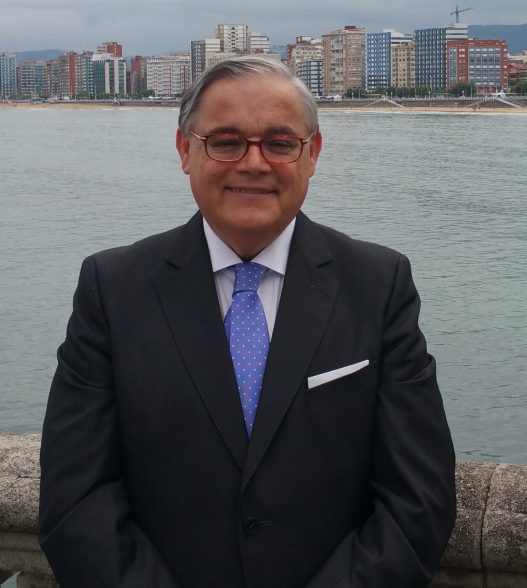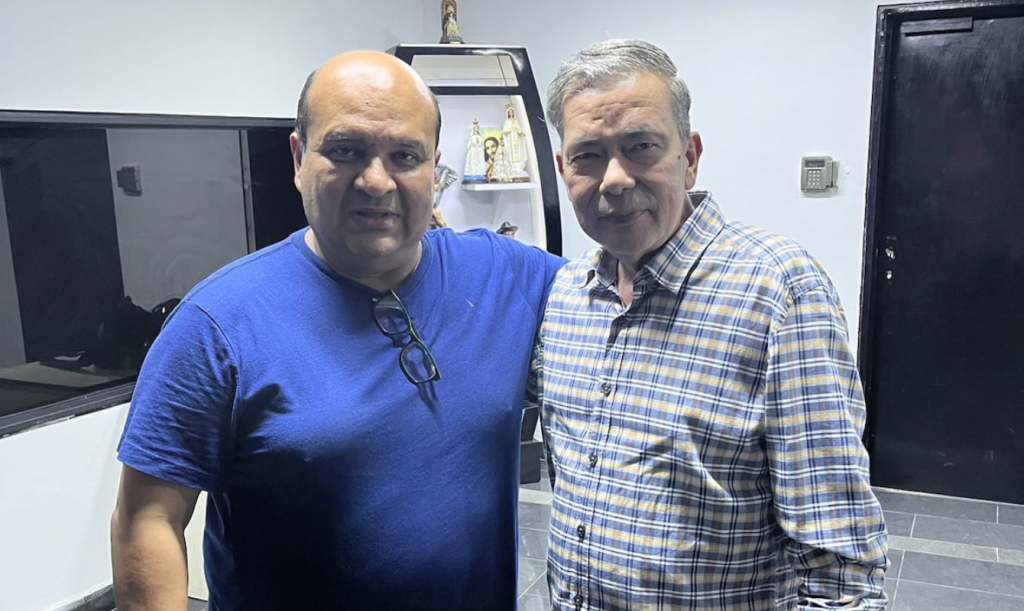ALBERTO BARCIELA
THE REFUGE OF THE TRIBE

Human beings must know how to find their refuges. Slave of the circumstances, of the strenuous present as a result of the polycrisis – wars, climatic and natural catastrophes, pandemics, economic and financial hardships, etc. -, aware of the reiteration of his mistakes as a species, moved by the irrational, terrored by so many extreme circumstances, imbued with excesses of the negative, he must know how to find the path of return to the tribe of small things, of the understandable, assimilable, achievable, which in the face of so much hopelessness can give him a minimum of calming optimism, of exciting prospects. I am convinced that trying to start over, recapitulate, reflect on the next will allow us to understand the irrationality that surrounds us and ponder the overwhelming avalanche, the avalanche, of uncontrolled information, true or not, intentional or not, contrasted or not, that floods our apparent local well-being and, of course, change some perceptions about what we cannot influence and that affects us so much.
It is not about being uncomplicated, which is impossible, but it is about taking a breath on a walk along the banks of the encompassable, the recognizable, the acceptable. Then, as far as possible, contribute to the common good. More than the global geostrategy, we have to deal with the personal tactics, the local one, the coexistence in the village, in the town, the city or the street, the neighborhood in which we live. Only in them will we be able to find a logical, sensible positioning, possible in the face of the abusive demands of a global world – we are already beginning to talk about an essential deglobalization – that is imposed on us on the magic of our small and endearing local cultures.
The wonderful abracadabra can begin by staring at the horizon of nearby beings, relatives, friends, neighbors, and worry about and with them about what concerns us at home or in the place we live in. We have to give up so many hours of screened papanatismo to enjoy a small walk again or share some beers; for taking refuge in the conversation, reading or watching of a good non-catastrophist movie – I have friends who share them to then engage in a dialogue about them -; for playing with children … life does not have so many days, nor does it offer as many opportunities as those offered to us at the moment.
Acting with the predisposition that I point out to them, looking for the refuge of the next and coverable, in my case I have resorted once again to reading. This time, Diarios, by Miguel Torga, a village Portuguese – he was born in São Martinho de Anta, Trás-os-Montes -, a writer, serious and reflective doctor, capable of dissecting life with humility, poet musicality, and perspectives immersed in common sense. A being who tries to offer his patients, with singularity to the dying – metaphorically it would also serve for his readers – the consolation of distraction in simple conversations about nature, the landscape, a trip… It narrates small gestures capable of offering examples of solidarity of the most disadvantaged, transfers enriching experiences and, with expository clarity and not without a certain melancholy, takes us to a universe of achievable hopes without lies, except the pious ones.
In one of those brief stories, dated during a hunt in the Gorongosa National Park, in central Mozambique, in the southern part of the Great Rift Valley, on June 4, 1973, he says: “no matter how much I live I will never forget the ironic surprise of three Aboriginal women, who did not understand a word of Portuguese, and the sideways look of a group of men sitting around a pot of cassava flour, while we gave each other a banquet. Strange, enigmatic faces, in which my bad white conscience read hatred and perhaps only reflected the instinctive distrust of the natives towards a similar one who is not. Between me and those brothers of species there was an insurmountable abyss of five hundred years wide. No matter how many turns I gave him, I was an enemy there. My sincere desire to say a word of sympathy to each one, to listen to their melodies, to caress the children who spied on us suspiciously from the back of the cabins was useless. Fraternity, poetry and tenderness came late or too soon.” It is a raw story, with a hard but sweet background at the same time if you know how to extract the lesson, an ambrosy that arises in his Diarios, tasteable in each expression and in each of his reflections.
Torga gives us this other image, a whole philosophy: “Tired of filling pages with hieroglyphics, I get up from the work table and go to the window to clear myself. When the spirit slips in the mud of abstractions, there is nothing better than taking the professional glasses away from seeing the world and contemplating reality with the naked eye. It’s good. People walk, greet each other, chat, smile; birds fly; the sun shines. And all naturally, freely, practically, without the need to wind it up beforehand and without transcendent purposes. With evidence that dispenses arguments, it is clear that, in a thousand, two thousand, one hundred thousand years, there will also be people who will walk, greet each other, talk, smile, and birds that will fly and the sun will shine. Therefore, all imaginary dramas are little less than stupid. More than lamentations, prophecies, pessimists, imprecations and despairs in the name of life, what counts is the sure serenity of one’s life.”
In Diarios you will find hundreds of possibilities to share, tell or dialogue. They are a perfect demonstration that, beyond the conjunctures, even in the face of the most real and dramatic, in words it is possible to find refuge, comfort and hope. That is the least that I hope I have managed to transfer to you with the support of Miguel Torga, an atheist who believed in human beings and who knew that the other exists, even if they don’t understand him.
Peace and good.
Alberto Barciela, a Spanish journalist, is the vice president of EditoRed.
This text is for free use. If you plan to use it, please quote the author and EditoRed.



